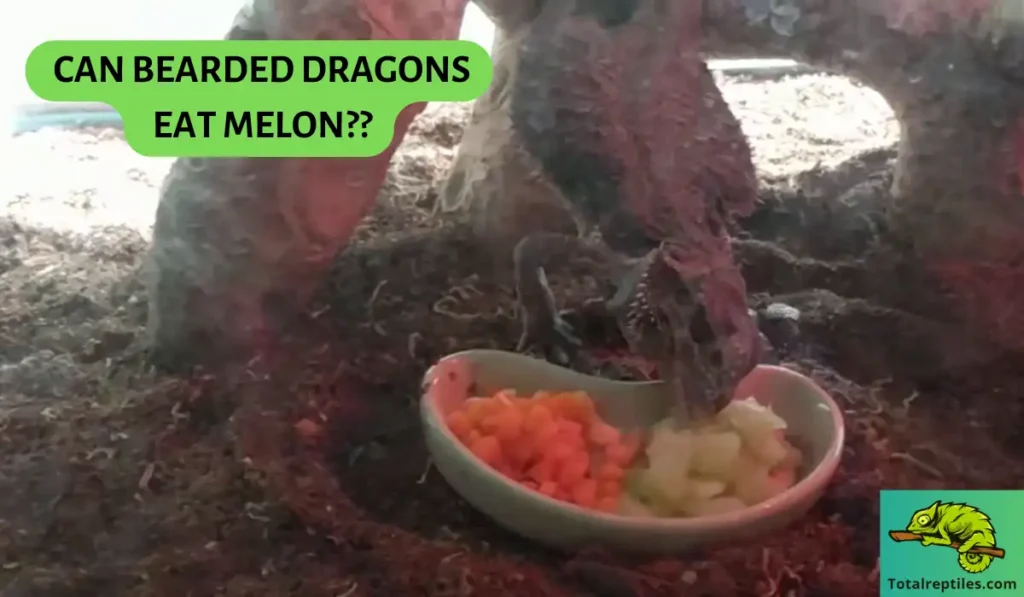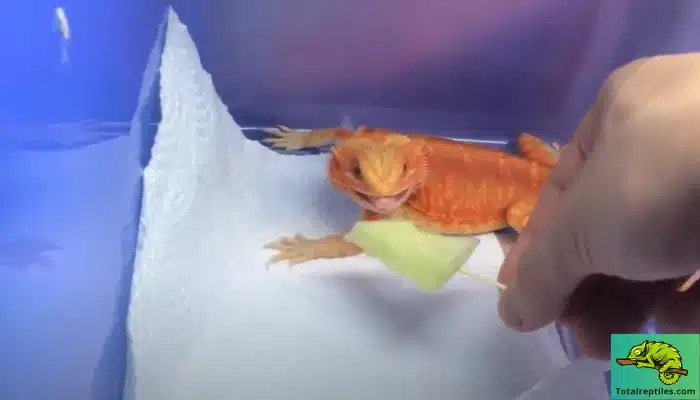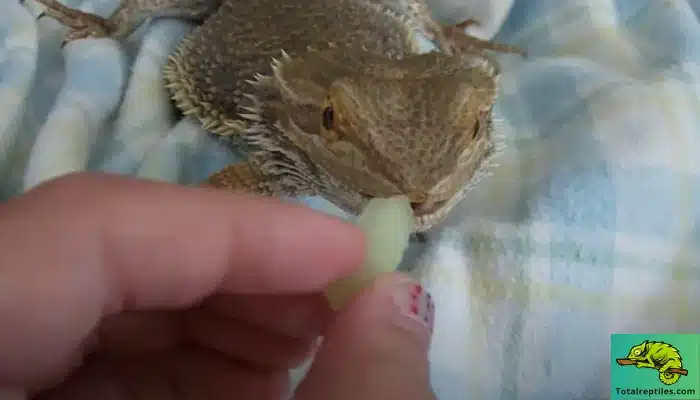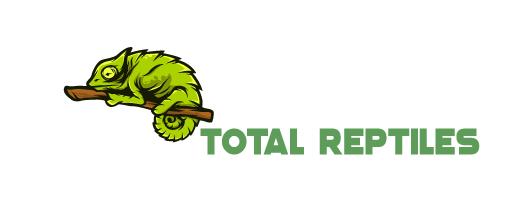Bearded dragons can eat melon! Melons like honeydew can make delicious and hydrating for beardies. Though melon shouldn’t be a staple of their diet, it can add variety and important nutrients when fed occasionally.
Honeydew is delicious and nutritious that humans can enjoy, but can bearded dragons eat honeydew treats? While this melon may provide vitamins and minerals, it is too sugary and hard to digest for a bearded dragon.
Still, this can be fed to your bearded dragon safely. I aim to give practical, relatable advice to help you make good decisions about melon for your bearded dragon.

Can Bearded Dragons Eat Honeydew Melon?
Bearded dragons can eat honeydew, but only in moderation. This melon should be an occasional treat for beardies, not a regular part of their diet. Here are bearded dragon feeding basics:
- Honeydew is not poisonous to bearded dragons, but too much sugar and water can upset their stomachs.
- This fruit has more phosphorus than calcium despite the 2:1 recommended ratio. Too much phosphorus can prevent proper calcium absorption.
- This melon has vitamin C, A, potassium, and magnesium but lacks other nutrients that bearded dragons need.
- Pieces of honeydew fed to bearded dragons should be bite-sized, and seeds should be removed.
- Bearded dragons should only be fed small amounts of this melon once or twice a month. Too much can lead to nutritional imbalances, diarrhea, and obesity.
Honeydew melon is not the most nutritious fruit for bearded dragons, but is generally safe in moderation.

What Types of Melons Can Bearded Dragons Eat?
Bearded dragons can eat some other types of melons in moderation, including:
- Watermelon: Feed little cubed chunks sometimes because it is high in water. Make sure to remove all seeds first.
- Cantaloupe: It has more vitamin A and beta carotene than other melons. Give bites a few times a month.
- Canary melons: Canary melons are smaller, sweeter melons that can be fed sparingly to bearded dragons. Remove the rind and seeds first.
Some other melons, like casaba and Crenshaw, are lower in nutritional value, so they aren’t recommended for bearded dragons.
The Health Benefits of Melons for Bearded Dragons
Honeydew, as indicated by the USDA Food Data Central, offers a variety of essential nutrients that can benefit your bearded dragon’s well-being. Some key benefits are discussed below:
Nutritional Values of Honeydew (Per 100g)
| Nutrient | Amount |
| Calories | 36 kcal |
| Water | 89.81 g |
| Protein | 0.54 g |
| Carbohydrates | 9.09 g |
| Dietary Fiber | 0.9 g |
| Sugars | 8.12 g |
| Fat | 0.14 g |
| Vitamin A | 64 IU |
| Vitamin C | 18.4 mg |
| Calcium | 6 mg |
| Phosphorus | 11 mg |
| Potassium | 228 mg |
- Hydration: Especially in hot months, this high water content hydrates.
- Vitamin C: honeydew contains vitamin C, an immune-boosting nutrient.
- Vitamin A: Important for eye health and proper shedding, melons are a source of beta carotene, which converts to vitamin A.
- Potassium: Melons provide potassium, which supports muscle and nerve function.
- Magnesium: Small amounts of magnesium in melons aid bone health.
- Fiber: The fiber in honeydew may help with digestive regularity.
While melons can offer some nutritional value, they should not replace other more nutrient-dense fruits and vegetables in a bearded dragon’s diet.
Risks of Feeding Honeydew Melons to Bearded Dragons
Here are some risks of feeding bearded dragons honeydew:
- Sugar content: All melons are relatively high in natural sugars, which can cause diarrhea if overfed.
- Hydration: Too much can lead to excessive hydration and electrolyte imbalances.
- Calcium: Low in calcium compared to ideal ratios for bearded dragons. Too much can impact bone health.
- Seeds and rind: The seeds and tough rind of melons present choking risks and should always be removed before feeding.
- Pesticides: Always thoroughly wash to remove any pesticide residue which can be toxic to reptiles.
Honeydew should be an occasional treat for bearded dragons to prevent any risks or complications. Pay close attention to your dragon’s reaction as well.

Tips for Feeding Melons to Bearded Dragons
If you want to feed your bearded dragon some honeydew as a treat occasionally, here are some tips for doing so safely:
- Choose ripe, fresh melons free of mold, bruises, or damage. Wash thoroughly before prepping.
- Always remove any seeds and rind flesh before feeding. Cut into bite-size cubes.
- Introduce melon slowly and in very small amounts to monitor for any diarrhea or reactions.
- Only feed melons occasionally, no more than once or twice a month for adult dragons—less for juveniles.
- Make sure a small part of a varied diet includes vegetables, insects, and calcium supplements.
- Discontinue feeding if you notice any signs of loose stool, lethargy, or other concerning symptoms.
With proper precautions, honeydew can be a fun, occasional treat for most bearded dragons!
How Often Can Bearded Dragons Eat Melons?
Melons like honeydew are high in sugar and water content; they should only be fed sparingly to bearded dragons. Here are some guidelines on feeding frequency:
- Adult bearded dragons: They can have a few small cubes of melon once or twice a month.
- Juvenile/baby bearded dragons should have melon even less frequently – once every 6-8 weeks at most.
- Gravid/breeding female dragons: Best to avoid melon altogether due to increased calcium needs.
- Underweight dragons should not be fed until weight is restored with insects and greens.
- Sick dragons: Do not feed melon to dehydrated dragons, have diarrhea, or have other health issues.
Remember that Honeydew is a treat only – not a dietary staple. Pay close attention to your bearded dragon’s health and adjust melon frequency accordingly. When in doubt, consult a vet on a proper diet.
Conclusion
While honeydew melon may not be the most nutritious choice, bearded dragons can enjoy small amounts of honeydew as an occasional treat.
These fruits provide dietary variety, nutrients, and hydration when fed sparingly. Just be sure to slowly remove rinds and seeds, introduce new foods, and limit melon to once or twice a month to prevent digestive issues.
With some precautions, melons can be a fun way to supplement your bearded dragon’s regular greens, vegetables, insects, and calcium diet.

